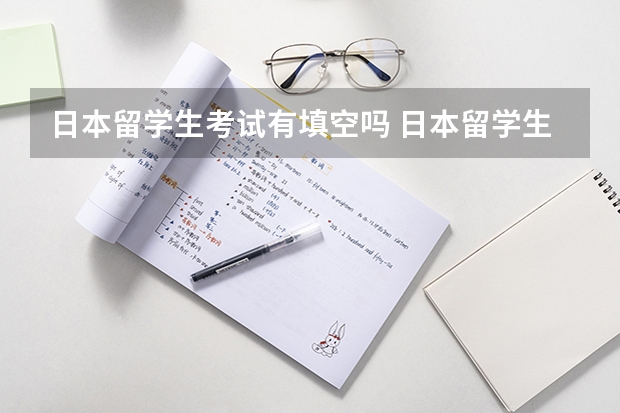如何积累自己的雅思口语素材库
2024-01-15 04:27:31 | 合力留学网
如何积累自己的雅思口语素材库很多朋友对这方面很关心,合力留学网整理了相关文章,供大家参考,一起来看一下吧!
THE JUDGE'S PLEDGE
As a member of the judiciary who desires to improve relations among
counsel and between the Bench and the Bar, I pledge as follows:
To be courteous, respectful and civil to the attorneys, parties, and
witnesses who appear before the court;
To exercise my authority to ensure that all the attorneys, parties, and
witnesses conduct themselves in a civil manner;
To refrain from any conduct or statement which discriminates on the basis
of race, religion, gender, sexual orientation or other personal
characteristic of attorneys, parties, or witnesses;
To instruct all court personnel to act civilly toward attorneys, parties,
and witnesses;
To refrain from the use of abusive, demeaning or humiliating language and
opinions in oral or written communication with attorneys, parties, and
witnesses;
To be punctual in covering all hearings, meetings, and conferences;
To give full consideration to the papers and arguments presented by
counsel
To make a reasonable effort to decide promptly all matters presented for
decision;
To be aware of the time restraints and pressures imposed upon attorneys by
the exigencies of litigation practice, while nevertheless endeavoring to
resolve disputes efficiently;
To make every effort to adhere to the statutes and court rules which are
intended to establish uniformity among all of the courts;
To consider the legitimate calendaring conflicts of attorneys, parties,
and witnesses in the administration of those matters before the court;
To avoid conduct which would give an appearance of favoritism to any
particular counsel or party;
To be mindful that the court is the servant of the people and its purpose
is the administration of justice.
法官的保证
作为法官队伍中的一名希望改善律师之间的关系以及法官与律师之间的关系的成员,本文作出如下保证:
对出庭或到庭的律师、当事人以及证人礼貌、尊重、文明;
行使本人的职权以保证所有的律师、当事人以及证人以文明方式行事;
避免任何歧视律师、当事人或者证人的种族、宗教、性别、性取向、或其他个人特征的行为或语言;
指示所有法院人员以文明方式对待律师、当事人以及证人;
在与律师、当事人以及证人的口头或书面交流中避免辱骂性的、贬损性的或羞辱性的语言或意见;
准时进行所有的聆审和会议;
充分考虑律师呈交的所有文件和做出的所有辩论;
做出合理努力以迅速地对所有待决事项做出决定;
考虑到诉讼实践给律师带来的时间限制和压力,但是仍然努力有效地解决争端;
尽力遵守旨在使所有法院统一的制定法和法院规则;
在处理法院事务是考虑律师、当事人以及证人的合理的时间冲突;
避免任何对某个律师或当事人由偏袒迹象的行为;
谨记法院是人民的公仆,其目的是维护正义。
Judges
Fewer than one in twenty of those admitted to practice law is a federal, state, county, or municipal court judge. Except for some inferior courts, judges are generally required to be admitted to practice but do not practice while on the bench. There is so little uniformity that it is difficult to generalize further than to point out three salient characteristics that relate to the ranks from which judges are drawn, to the method of their selection, and to their tenure.
Judges are drawn from the practicing bar and less frequently from government service or the teaching profession. There is in the United States no career judiciary like that found in many other countries and there is no prescribed route for the young law graduate who aspires to be a judge, no apprenticeship that must be served, no service that must be entered. The outstanding young law graduates who act for a year or two as law clerks to the most distinguished judges of the federal and state courts have only the reward of the experience to take with them into practice and not the promise of a judicial career. While it is not uncommon for a vacancy on a higher court to be filled by a judge from a lower court, even this cannot be said to be the rule. The legal profession is not entirely unaware of the advantages of a career judiciary, but it is generally thought that they are outweighed by the experience and independence which American lawyers bring to the bench. Many of the outstanding judges of the country�s highest courts have had no prior judicial experience. Criticism has centered instead on the prevalent method of selection of judges.
State court judges are usually elected, commonly by popular vote, but occassionally by the legislature. Popular election has been the subject of much disapproval, including that of the American Bar Association, on the ground that the public lacks interest in and information on candidates for judicial office and that therefore the outcome is too often controlled by leaders of political parties. The situation has been somewhat improved since many local bar associations have undertaken to evaluate the qualifications of candidates and to support or oppose them on this basis.
Since 1937, the American Bar Association has advocated the substitution of a system under which the governor appoints judges from a list submitted by a special nominating board and the judge then periodically stands unopposed for reelection by popular vote on the basis of his or her record. Such a system is now in effect, for at least some judges, in a substantial minority of states. In a small group of states, judges are appointed by the governor subject to legislative confirmation.
This is also the method of selection of federal judges, who are appointed by the President subject to confirmation by the Senate. Even under the appointive system the selection of judges is not immune from political influence and appointees are usually of the President�s or governor�s own party. But names of candidates for the federal judiciary are submitted to a committee of the American Bar Association and appointment is usually made only with its approval. The office of chief judge or chief justice is usually filled in the same manner as other judicial offices, although in some states it is filled from among the members of the court by rotation, by seniority of service, or by vote of the judges. The Chief Justice of the United States is appointed by the President, subject to Senate confirmation.
The third characteristic is that judges commonly serve for a term of years rather than for life. For courts of general jurisdiction it is typically four, six, or eight years, and for appellate courts, six, eight, or ten years. Happily, even where selection is by popular election, it is customary to return to office for sitting judges whose service has been satisfactory. In a few state courts and in the federal courts the judges sit for life. Whether on the bench for a term of years or for life, a judge may be removed from office only for gross misconduct and only by formal proceedings. Instances of removal have been rare indeed and only a handful of federal judges have been removed by formal proceedings. The independence of the judiciary is also encouraged by the rule that a judge incurs no civil liability for judicial acts, even if guilty of fraud and corruption. The American Bar Association�s Code of Judicial Conduct has been widely adopted as a standard to which judges are expected to adhere. Salaries for the higher judicial offices are usually good although less than the income of a successful private practitioner, the prestige of these offices is high, and the bench has been able to attract many of the country�s ablest legal minds. The great names in American law are in large part the names of its great judges.
TEAMWORK
下面我们来看看该从哪些方面进行话题素材的积累。
首先,既然话题来源于生活,那么从生活中积累素材就是很必须的,所以在对口语的话题有所了解之后,可以开始系统的收集相关语言素材的活动,建立自己的语汇本,按照话题分类(如城镇描述、教育话题等)收集词汇、词组、句子以及好的段落及文章。这样的准备不仅对雅思考试有帮助,也是提高口语和写作水平的好办法。详细内容可以参考日常生活中怎么提高雅思口语的相关内容。
其次,根据具体的话题进行素材的积累也是很有必要的。
下面我们列举一些6-6.5分的高频素材供大家参考。
1.食物类话题,民以食为天,所以此话题和生活息息相关,那么在雅思口语part1中,和食物有关的话题始终是考官比较青睐的,所以积累相关词汇把握答题思路就显得尤为重要。更多素材可以参看雅思口语6-6.5分part1食物类话题素材积累。
2. 娱乐类话题,“只工作不玩耍,聪明的孩子也变傻。”,生活如此,雅思口语考试话题就来来源于生活,因此,在雅思口语的世界里,娱乐类的话题是极其高频的题目,如电影、音乐、电视、以及其他休闲活动等等。更多素材可以参看雅思口语6-6.5分part1娱乐类话题素材积累。
3.购物类话题,在雅思口语part1中,和shopping有关的话题始终倍受考官的青睐。经常作为高频话题出现,所以话题素材的积累就不用多说了。更多素材可以参看雅思口语6-6.5分part1购物类话题素材积累。
4.阅读类话题,在雅思口语part1中,阅读类的话题是极其高频的题目,关于阅读类的话题同学们一定要用心准备,尤其是书的类型,以及对它的看法等等。更多素材可以参看雅思口语6-6.5分part1阅读类话题素材积累。
最后雅思口语6-6.5分part1住宿类话题素材积累、雅思口语6-6.5分part1工作类话题素材积累也都是非常高频的话题,所以多下点功夫是很有必要的,而这里的话题分类介绍对大家来说也是很有价值的。
一、雅思口语考试概述
雅思口语考试分为三部分,分别是part 1,part 2和part 3。
Part 1是关于日常话题的简单对话(询问名字,电影等)。
Part 2是给你一个话题来讨论(借东西,见面等)。
Part 3是与第二部分相关的讨论。
当我们了解了考试内容后,就会知道需要准备哪些材料。
二、针对口试积累材料
1. 口语材料
首先是积累最基本的词汇和句型。如果我们想要表达,需要积累足够的词汇。如果我们想要更好的表达内容,我们需要积累一些常用的句型来提高。
另外,英语口语来源于生活,考试的形式也是生活化的,所以可以积累一些生活化的表达。最后,积累范文很有必要,因为这样更有针对性,可以帮助我们更好地掌握雅思口语考试。
2. 材料途径
材料积累的方式也很广泛,可以通过网站、电视剧、歌曲等渠道积累口语材料。
建议养成平时浏览英语网站的习惯,及时积累和记录能提高口语表达的内容。
此外,可以通过一些英剧来积累演讲素材,比如《唐顿庄园》、《神秘博士》、《神探夏洛克》等;这些戏剧会涉及很多我们生活中常见的场景。听英文歌,也可以在歌词中积累一些优秀的表达。
三、结合口语材料
口语材料的积累最终会回到雅思口语练习中。在网站、电视剧、歌曲上积累的口语材料,应该在雅思口语话题上进行练习,提高我们的应用能力。
建议找一个伙伴进行雅思口语测试场景模拟,然后根据不同的话题,尽量运用自己积累的口语材料。 以上就是合力留学网为大家带来的如何积累自己的雅思口语素材库,希望能帮助到大家!
免责声明:文章内容来自网络,如有侵权请及时联系删除。
本文目录一览:

雅思口语 求高手给素材
JUDGE'S PLEDGETHE JUDGE'S PLEDGE
As a member of the judiciary who desires to improve relations among
counsel and between the Bench and the Bar, I pledge as follows:
To be courteous, respectful and civil to the attorneys, parties, and
witnesses who appear before the court;
To exercise my authority to ensure that all the attorneys, parties, and
witnesses conduct themselves in a civil manner;
To refrain from any conduct or statement which discriminates on the basis
of race, religion, gender, sexual orientation or other personal
characteristic of attorneys, parties, or witnesses;
To instruct all court personnel to act civilly toward attorneys, parties,
and witnesses;
To refrain from the use of abusive, demeaning or humiliating language and
opinions in oral or written communication with attorneys, parties, and
witnesses;
To be punctual in covering all hearings, meetings, and conferences;
To give full consideration to the papers and arguments presented by
counsel
To make a reasonable effort to decide promptly all matters presented for
decision;
To be aware of the time restraints and pressures imposed upon attorneys by
the exigencies of litigation practice, while nevertheless endeavoring to
resolve disputes efficiently;
To make every effort to adhere to the statutes and court rules which are
intended to establish uniformity among all of the courts;
To consider the legitimate calendaring conflicts of attorneys, parties,
and witnesses in the administration of those matters before the court;
To avoid conduct which would give an appearance of favoritism to any
particular counsel or party;
To be mindful that the court is the servant of the people and its purpose
is the administration of justice.
法官的保证
作为法官队伍中的一名希望改善律师之间的关系以及法官与律师之间的关系的成员,本文作出如下保证:
对出庭或到庭的律师、当事人以及证人礼貌、尊重、文明;
行使本人的职权以保证所有的律师、当事人以及证人以文明方式行事;
避免任何歧视律师、当事人或者证人的种族、宗教、性别、性取向、或其他个人特征的行为或语言;
指示所有法院人员以文明方式对待律师、当事人以及证人;
在与律师、当事人以及证人的口头或书面交流中避免辱骂性的、贬损性的或羞辱性的语言或意见;
准时进行所有的聆审和会议;
充分考虑律师呈交的所有文件和做出的所有辩论;
做出合理努力以迅速地对所有待决事项做出决定;
考虑到诉讼实践给律师带来的时间限制和压力,但是仍然努力有效地解决争端;
尽力遵守旨在使所有法院统一的制定法和法院规则;
在处理法院事务是考虑律师、当事人以及证人的合理的时间冲突;
避免任何对某个律师或当事人由偏袒迹象的行为;
谨记法院是人民的公仆,其目的是维护正义。
Judges
Fewer than one in twenty of those admitted to practice law is a federal, state, county, or municipal court judge. Except for some inferior courts, judges are generally required to be admitted to practice but do not practice while on the bench. There is so little uniformity that it is difficult to generalize further than to point out three salient characteristics that relate to the ranks from which judges are drawn, to the method of their selection, and to their tenure.
Judges are drawn from the practicing bar and less frequently from government service or the teaching profession. There is in the United States no career judiciary like that found in many other countries and there is no prescribed route for the young law graduate who aspires to be a judge, no apprenticeship that must be served, no service that must be entered. The outstanding young law graduates who act for a year or two as law clerks to the most distinguished judges of the federal and state courts have only the reward of the experience to take with them into practice and not the promise of a judicial career. While it is not uncommon for a vacancy on a higher court to be filled by a judge from a lower court, even this cannot be said to be the rule. The legal profession is not entirely unaware of the advantages of a career judiciary, but it is generally thought that they are outweighed by the experience and independence which American lawyers bring to the bench. Many of the outstanding judges of the country�s highest courts have had no prior judicial experience. Criticism has centered instead on the prevalent method of selection of judges.
State court judges are usually elected, commonly by popular vote, but occassionally by the legislature. Popular election has been the subject of much disapproval, including that of the American Bar Association, on the ground that the public lacks interest in and information on candidates for judicial office and that therefore the outcome is too often controlled by leaders of political parties. The situation has been somewhat improved since many local bar associations have undertaken to evaluate the qualifications of candidates and to support or oppose them on this basis.
Since 1937, the American Bar Association has advocated the substitution of a system under which the governor appoints judges from a list submitted by a special nominating board and the judge then periodically stands unopposed for reelection by popular vote on the basis of his or her record. Such a system is now in effect, for at least some judges, in a substantial minority of states. In a small group of states, judges are appointed by the governor subject to legislative confirmation.
This is also the method of selection of federal judges, who are appointed by the President subject to confirmation by the Senate. Even under the appointive system the selection of judges is not immune from political influence and appointees are usually of the President�s or governor�s own party. But names of candidates for the federal judiciary are submitted to a committee of the American Bar Association and appointment is usually made only with its approval. The office of chief judge or chief justice is usually filled in the same manner as other judicial offices, although in some states it is filled from among the members of the court by rotation, by seniority of service, or by vote of the judges. The Chief Justice of the United States is appointed by the President, subject to Senate confirmation.
The third characteristic is that judges commonly serve for a term of years rather than for life. For courts of general jurisdiction it is typically four, six, or eight years, and for appellate courts, six, eight, or ten years. Happily, even where selection is by popular election, it is customary to return to office for sitting judges whose service has been satisfactory. In a few state courts and in the federal courts the judges sit for life. Whether on the bench for a term of years or for life, a judge may be removed from office only for gross misconduct and only by formal proceedings. Instances of removal have been rare indeed and only a handful of federal judges have been removed by formal proceedings. The independence of the judiciary is also encouraged by the rule that a judge incurs no civil liability for judicial acts, even if guilty of fraud and corruption. The American Bar Association�s Code of Judicial Conduct has been widely adopted as a standard to which judges are expected to adhere. Salaries for the higher judicial offices are usually good although less than the income of a successful private practitioner, the prestige of these offices is high, and the bench has been able to attract many of the country�s ablest legal minds. The great names in American law are in large part the names of its great judges.
TEAMWORK

如何积累自己的雅思口语素材库
雅思口语考试备考中积累素材是非常重要的,雅思口语所有比较固定的问题,但在考试中遇到冷门问题还是很常见的,雅思口语考试的难度不断在增加,我们更要多准备些口语素材。 Part1部分一直以来都是是整个考试的导入部分。考官在这一部分中会询问和考生自身有关的问题,通过较为简单的提问来达到让考生放松情绪的目的,以便在整个考试过程中能够正常发挥其语言水平。主要涉及话题有:工作、学习、家庭、兴趣爱好、休闲活动、家乡、城市交通、天气、个人打算和计划等等。尽管如此,但是我们却不能随意对待。下面我们来看看该从哪些方面进行话题素材的积累。
首先,既然话题来源于生活,那么从生活中积累素材就是很必须的,所以在对口语的话题有所了解之后,可以开始系统的收集相关语言素材的活动,建立自己的语汇本,按照话题分类(如城镇描述、教育话题等)收集词汇、词组、句子以及好的段落及文章。这样的准备不仅对雅思考试有帮助,也是提高口语和写作水平的好办法。详细内容可以参考日常生活中怎么提高雅思口语的相关内容。
其次,根据具体的话题进行素材的积累也是很有必要的。
下面我们列举一些6-6.5分的高频素材供大家参考。
1.食物类话题,民以食为天,所以此话题和生活息息相关,那么在雅思口语part1中,和食物有关的话题始终是考官比较青睐的,所以积累相关词汇把握答题思路就显得尤为重要。更多素材可以参看雅思口语6-6.5分part1食物类话题素材积累。
2. 娱乐类话题,“只工作不玩耍,聪明的孩子也变傻。”,生活如此,雅思口语考试话题就来来源于生活,因此,在雅思口语的世界里,娱乐类的话题是极其高频的题目,如电影、音乐、电视、以及其他休闲活动等等。更多素材可以参看雅思口语6-6.5分part1娱乐类话题素材积累。
3.购物类话题,在雅思口语part1中,和shopping有关的话题始终倍受考官的青睐。经常作为高频话题出现,所以话题素材的积累就不用多说了。更多素材可以参看雅思口语6-6.5分part1购物类话题素材积累。
4.阅读类话题,在雅思口语part1中,阅读类的话题是极其高频的题目,关于阅读类的话题同学们一定要用心准备,尤其是书的类型,以及对它的看法等等。更多素材可以参看雅思口语6-6.5分part1阅读类话题素材积累。
最后雅思口语6-6.5分part1住宿类话题素材积累、雅思口语6-6.5分part1工作类话题素材积累也都是非常高频的话题,所以多下点功夫是很有必要的,而这里的话题分类介绍对大家来说也是很有价值的。
怎么积累雅思口语素材
为什么要积累雅思口语材料?我们都知道一句话:巧妇难为无米之炊,如果没有材料积累,可能在口语考试中会无话可说。下面就来说说怎么积累雅思口语素材,千万别错过。一、雅思口语考试概述
雅思口语考试分为三部分,分别是part 1,part 2和part 3。
Part 1是关于日常话题的简单对话(询问名字,电影等)。
Part 2是给你一个话题来讨论(借东西,见面等)。
Part 3是与第二部分相关的讨论。
当我们了解了考试内容后,就会知道需要准备哪些材料。
二、针对口试积累材料
1. 口语材料
首先是积累最基本的词汇和句型。如果我们想要表达,需要积累足够的词汇。如果我们想要更好的表达内容,我们需要积累一些常用的句型来提高。
另外,英语口语来源于生活,考试的形式也是生活化的,所以可以积累一些生活化的表达。最后,积累范文很有必要,因为这样更有针对性,可以帮助我们更好地掌握雅思口语考试。
2. 材料途径
材料积累的方式也很广泛,可以通过网站、电视剧、歌曲等渠道积累口语材料。
建议养成平时浏览英语网站的习惯,及时积累和记录能提高口语表达的内容。
此外,可以通过一些英剧来积累演讲素材,比如《唐顿庄园》、《神秘博士》、《神探夏洛克》等;这些戏剧会涉及很多我们生活中常见的场景。听英文歌,也可以在歌词中积累一些优秀的表达。
三、结合口语材料
口语材料的积累最终会回到雅思口语练习中。在网站、电视剧、歌曲上积累的口语材料,应该在雅思口语话题上进行练习,提高我们的应用能力。
建议找一个伙伴进行雅思口语测试场景模拟,然后根据不同的话题,尽量运用自己积累的口语材料。 以上就是合力留学网为大家带来的如何积累自己的雅思口语素材库,希望能帮助到大家!
免责声明:文章内容来自网络,如有侵权请及时联系删除。
与“如何积累自己的雅思口语素材库”相关推荐
栏目推荐
热点图文
-
 留学生考试条件 去国外留学需要考哪些考试?
留学生考试条件 去国外留学需要考哪些考试?2023-08-29 18:07:55
-
 如何提高雅思成绩?
如何提高雅思成绩?2024-01-13 21:53:48
-
 环球雅思学费 雅思培训哪家好雅思
环球雅思学费 雅思培训哪家好雅思2024-01-13 02:44:29
-
 徐州环球雅思口语时间 2023年出国留学最新消息说明,增加雅思考场!雅思费用下降!(内附各省雅思考试考点)
徐州环球雅思口语时间 2023年出国留学最新消息说明,增加雅思考场!雅思费用下降!(内附各省雅思考试考点)2024-01-11 09:42:55
-
 日本留学生考试有填空吗 日本留学生考试常识解析
日本留学生考试有填空吗 日本留学生考试常识解析2023-09-06 09:43:20
-
 宁波哪里有雅思英语培训?
宁波哪里有雅思英语培训?2024-01-19 03:33:58
